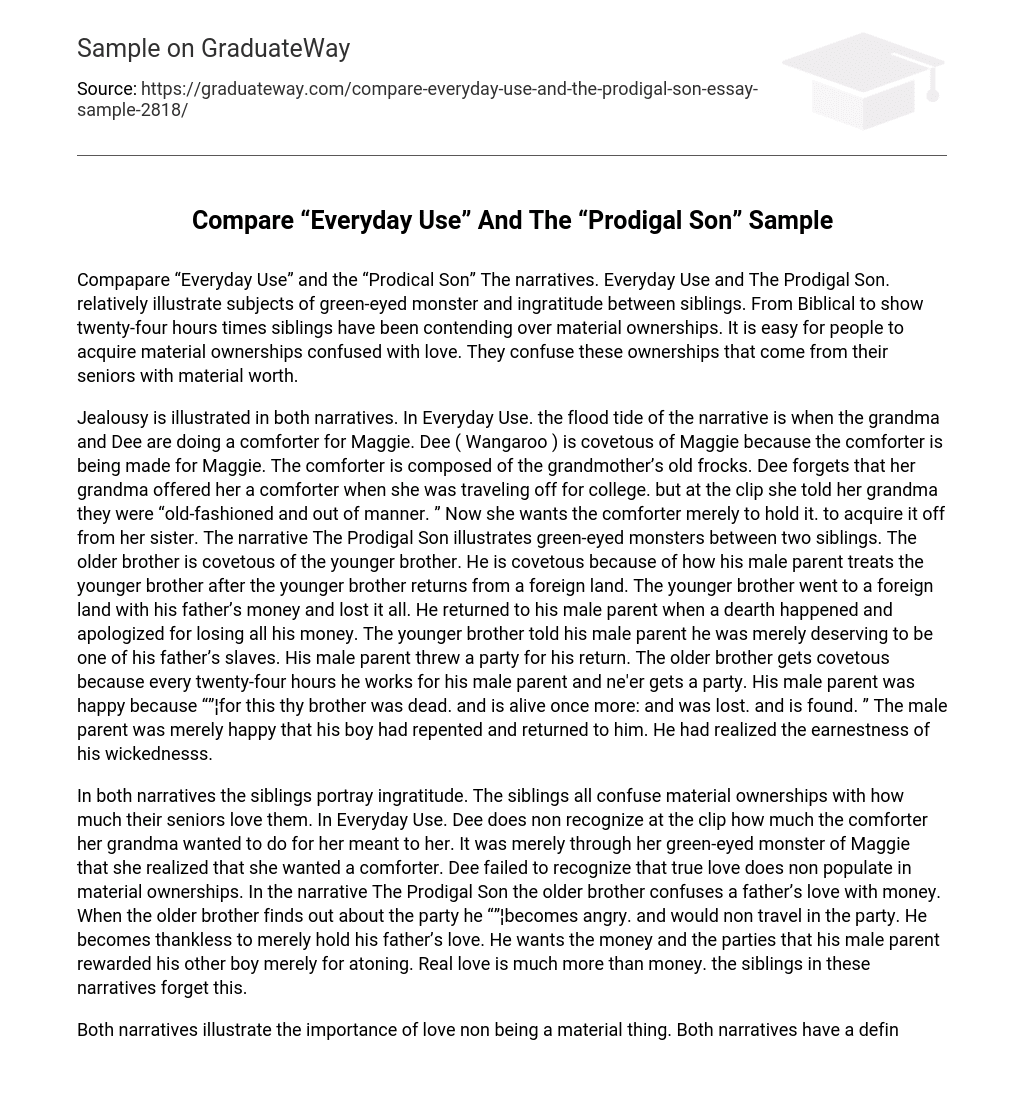Compapare “Everyday Use” and the “Prodical Son” The narratives. Everyday Use and The Prodigal Son. relatively illustrate subjects of green-eyed monster and ingratitude between siblings. From Biblical to show twenty-four hours times siblings have been contending over material ownerships. It is easy for people to acquire material ownerships confused with love. They confuse these ownerships that come from their seniors with material worth.
Jealousy is illustrated in both narratives. In Everyday Use. the flood tide of the narrative is when the grandma and Dee are doing a comforter for Maggie. Dee ( Wangaroo ) is covetous of Maggie because the comforter is being made for Maggie. The comforter is composed of the grandmother’s old frocks. Dee forgets that her grandma offered her a comforter when she was traveling off for college. but at the clip she told her grandma they were “old-fashioned and out of manner. ” Now she wants the comforter merely to hold it. to acquire it off from her sister. The narrative The Prodigal Son illustrates green-eyed monsters between two siblings. The older brother is covetous of the younger brother. He is covetous because of how his male parent treats the younger brother after the younger brother returns from a foreign land. The younger brother went to a foreign land with his father’s money and lost it all. He returned to his male parent when a dearth happened and apologized for losing all his money. The younger brother told his male parent he was merely deserving to be one of his father’s slaves. His male parent threw a party for his return. The older brother gets covetous because every twenty-four hours he works for his male parent and ne’er gets a party. His male parent was happy because “”¦for this thy brother was dead. and is alive once more: and was lost. and is found. ” The male parent was merely happy that his boy had repented and returned to him. He had realized the earnestness of his wickednesss.
In both narratives the siblings portray ingratitude. The siblings all confuse material ownerships with how much their seniors love them. In Everyday Use. Dee does non recognize at the clip how much the comforter her grandma wanted to do for her meant to her. It was merely through her green-eyed monster of Maggie that she realized that she wanted a comforter. Dee failed to recognize that true love does non populate in material ownerships. In the narrative The Prodigal Son the older brother confuses a father’s love with money. When the older brother finds out about the party he “”¦becomes angry. and would non travel in the party. He becomes thankless to merely hold his father’s love. He wants the money and the parties that his male parent rewarded his other boy merely for atoning. Real love is much more than money. the siblings in these narratives forget this.
Both narratives illustrate the importance of love non being a material thing. Both narratives have a definite moral lesson. Both narratives exemplify how it is more of import to hold the individual instead than any material ownership. The siblings in the narratives Everyday Use and The Prodigal Son portray green-eyed monster and ingratitude to the other siblings.





